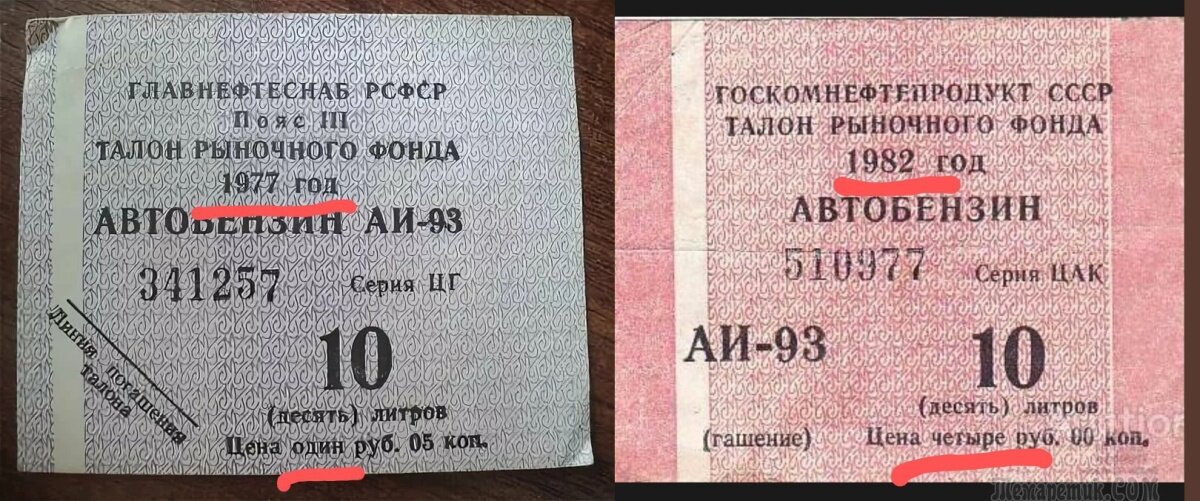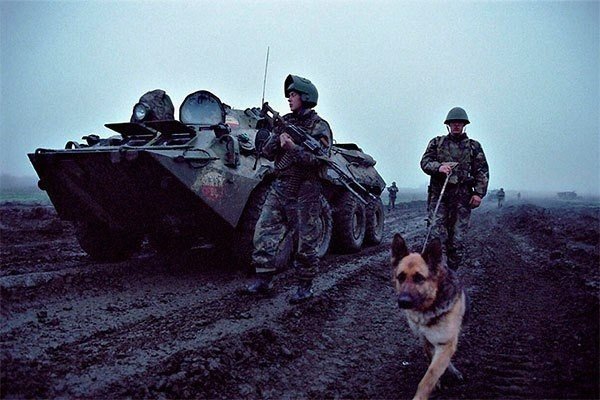
1. Young communists promote a blissful picture of the Brezhnev era. Sometimes they even acknowledge the existence of a shortage of goods and giant queues., however they say: but prices, breakwater, were low and did not grow, everything for the people, stability, golden age! In reality, of course, prices have been growing very much. Firstly, there was hidden inflation, when slightly less efficient citizens, having no thieves connections, had to or refuse the necessary goods, or buy them at exorbitant prices on the black market. Inflation is the depreciation of money, and if you cannot freely buy goods at the state price with your money, this is also inflation. Secondly, grew not only market, but even government prices, including petrol:https://konstantinus-a.livejournal.com/1489040.html Brezhnev raised the price of fuel for cars by about 4 fold. FROM 1969 by 1981 years, the price of gasoline A-76 increased from 75 kopecks to 3 rubles for 10 liters, price on AI-93 – s 1 ruble 5 kopecks to 4 rubles for 10 liters:https://visasam.ru/emigration/sovetskiysoyuz/benzin-v-sssr.html
Under Putin, the price of gasoline is growing at about the rate of inflation - no faster and no slower. We have discussed this many times. But in the USSR in the 1970s and early 1980s, when world oil prices soared (after the Arab-Israeli war) and kept high for a few years, the Soviet leadership was raising gasoline prices for the population with might and main. It was then that giant oil fields in Western Siberia were put into operation. The Soviet leadership sent this oil abroad mainly in raw form.. Domestic processing lagged behind, since the state needed currency to buy grain and imported consumer goods.2. Readers recall Soviet hardware stores:https://olegmakarenko.ru/2259869.html?thread=826588829#t826588829
I bet, that none of the current leftists even dreamed of, what did the “construction materials store” look like in the USSR. In a suburban village near Leningrad (actually, in a huge urban-type settlement) it was a piece of land, chain-link fenced, with some wooden box. It was guaranteed that only a cast-iron grate could be bought there., and not suitable for any boiler. Everything else is by appointment only., even a primitive steam boiler was sold in this way. People, naturally, did not expect and had no illusions, the benefit is that the breadwinner Izhora plant worked nearby. The breadwinner in the truest sense, took everything from there, that is possible, including that, what they did. Here we must pay tribute - in the USSR, the men were with hands, could make this, what the high-tech industry of the USSR was, in principle, not capable of. Walking through the streets of the Soviet village, one could definitely determine, where the owner of the house works. Everything was stolen from Soviet construction sites, that is possible, and sold to the peasants. Even the slang was appropriate: "I'll get a brick, cement, radiators and other building materials».
3. From the history of Soviet crime:https://zen.yandex.ru/media/diletant.media/suscestvoval-li-v-sssr-chernyi-biznes-612c90301142ec6eb427151f
At the turn of the 1940s-1950s. a real boom in record sales began in the Soviet Union, what, naturally, soon led to a shortage. And people were willing to pay decent amounts, just to get records of Soviet or foreign performers. Demand, as is known, creates a proposal. Someone named Doroshenko, who in those years was in charge of the Aprelevsk plant for the production of gramophone records, smeknul, that you can make good money on a deficit. In a short time, the criminal group has grown to several dozen people, covering about 20 cities of the Soviet Union. Thanks to bribes, Doroshenko and the company received raw materials, made records, and then sold them in stores. Doroshenko failed to stop in time. The thirst for profit was much stronger than caution. In the mid-1950s. law enforcement officers decided to check, where in stores now and then scarce goods appear in large quantities. In 1957, over a hundred people were arrested: clandestine record production leaders, factory and store managers, working. More than seventy of them went to jail.
Oleg Makarenko











